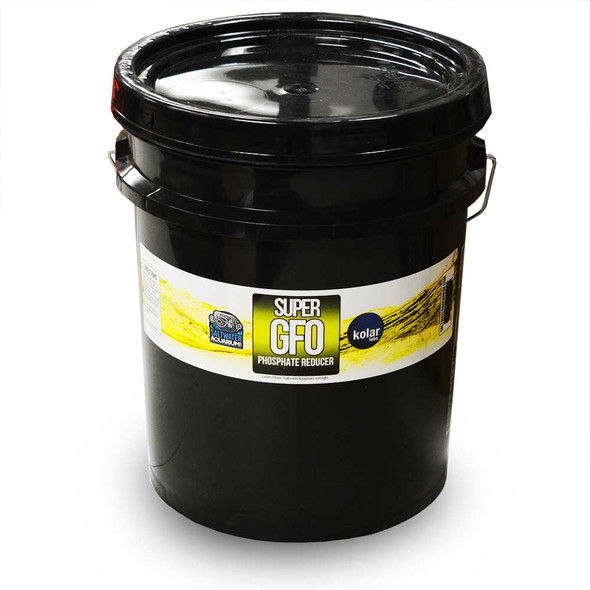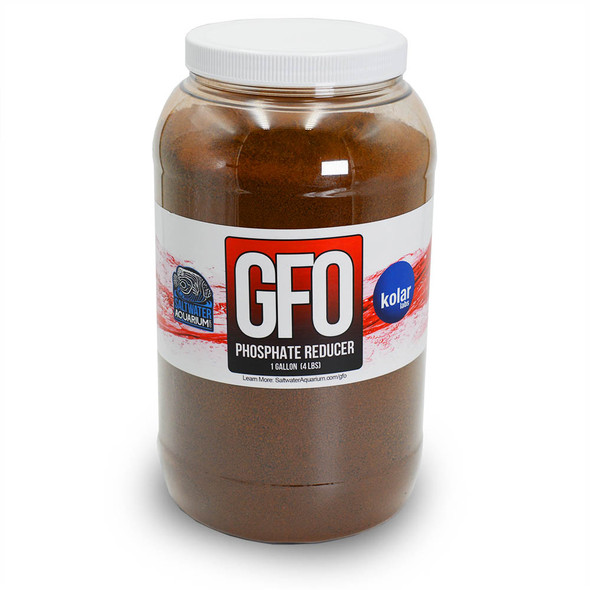Description
This High Capacity GFO is the Original GFO Bayoxide E33. All of the fines and dust have be prefilltered out to give you a heaver more effective product. High phosphate levels are a recipe for disaster in saltwater aquariums. It is a nutrient for nuisance algae and also hampers the formation of calcium skeleton in corals. There are several different methods for dealing with phosphate levels but one they I like is using granulated ferric oxide (or GFO) in a media reactor. GFO is best used with a media reactor for several reasons.
- HIGH QUALITY: High quality ultra-pure virgin GFO for removing phosphates in water.
- REDUCES ALGAE: Kills algae and prevents them from coming back by removing their food source, phosphate
- RINSE BEFORE USE: Give quick rinse in RO water to remove any dust and fines. Super GFO needs minimal rinsing.
- SAFE FOR ALL AQUARIUMS: Works in salt water and freshwater aquariums & ponds
- Bayoxide is a registered trademark of LANXESS Gmb, sold as a Co Brand with Kolar Labs
PRO TIP - When using GFO in a media reactor watch the flow rate of the water through the media. It does not need to be very fast at all. You don't want it looking like boiling water where it is throwing up small particles in the reactor. You just want the very top inch or less turning over ever so slightly like water right before a boil. Otherwise you will get GFO dust all inside your sump and possibly inside your display tank. Depending which reactor you choose, it is a good idea to run the output of the reactor into a filter sock. Worst case scenario some GFO fines get into the filter sock but this way you can avoid the disaster of GFO fines everywhere.
GFO Bayoxide® E33:
DETAILED INSTRUCTIONS:
- Standard Starting dose is 1 gram/gallon: best in fluidized reactor. EXAMPLE: 8 grams= 1 level tablespoon, 16Tbsp=1 cup. 1 cup per 128 gallons to start, 1 cup per 64 gallons standard dose.
- Monitor phosphates, add or change media when levels start to rise, or if algae increases. Sometimes the algae consume so much phosphates the levels test low while algae growth is still present. Once break in period is over, continue increasing until algae is controlled, or switch to High Capacity for stubborn algae problems. For optimal effectiveness, do not allow overall Phosphate levels to test above 0.05ppm. Test water coming directly from the phosphate reactor for phosphates. If any phosphates are present, GFO should be increased or replaced.
- For best results, Pre-filter water going into reactor, and water going out (example: filter sock on effluent to trap fines, especially with new media). Pro tip: Remove all sponges before and after media in reactors and replace with plastic mesh to prevent clogging. Add small check valve to pump side of water line/keep return line submerged, to prevent back siphoning into pump in a power cut.
- Rinse all new media and discard discolored water from rinsing before use. Pro tip: Use bucket full of tank water and submerge pump and reactor in it. Run pump with return line running to drain until discoloration stops, then return line back into bucket. Run for a few minutes checking for proper fluidization. Check for Air bubbles or pockets, and gently tap or tilt reactor to eliminate them. Return pump and reactor to sump or tank together.
- Check weekly for good flow and fluidization. If clogged, dump reactor contents into 5 gallon bucket with tank water, stir and poor off debris. Media can then be returned to reactor in part or whole. Pro tip: Use this technique when changing media, and save approx. 1/4 of old media to mix into new media, keeping bacterial cultures stable to prevent bacteria or algae bloom from media change. If used in canister filter, use micron bag to hold GFO preferably in thin layers to keep good flow, and reduce channeling through media.
- If any negative coral reaction is noticed after new or changed media, reduce amount by half. Dropping phosphates too quickly can cause shock, once established, overdose is unlikely and phosphates will not leach back into system.












